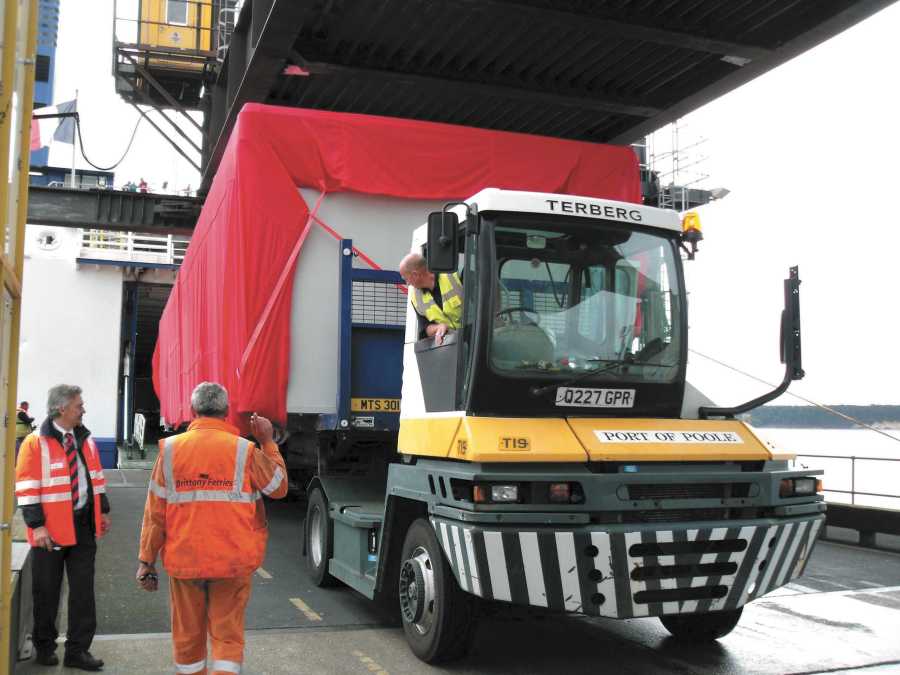Brittany Ferries has reported an increased demand for unaccompanied trailers to travel on their fleet.
Post-Brexit covid tests, driver delays and increased paperwork are just three of the reasons given by operators for the switch.
All ferry companies reported a drop in freight volumes throughout January as a consequence of leaving the EU. Stockpiling in December and the fear of food shortages led operators to increase imports before the UK’s departure date.
But, despite the drop in volumes, the proportion of unaccompanied trailers using Brittany Ferries is higher than previous years.
One example is Galicia, which is , operating between Santander in Spain and Portsmouth. Since sailings began in early December, around 40% of Galicia’s freight has been unaccompanied trailers.
Brittany Ferries carries around 210,000 freight units in a typical year. The company’s 12 ships currently serve ports throughout France, UK, Spain and Ireland.
“Negative covid tests for drivers are certainly helping drive the trend for unaccompanied loads,” commented Simon Wagstaff, freight director, Brittany Ferries. “However, there are other financial benefits in going driverless. We know of one large haulage operation in Ireland that has organised reciprocal arrangements with another in Spain. Dropping off and picking up trailers for each other is a cost-effective way of doing business.”
Brittany Ferries has announced plans to offer more freight routes connecting some of the French ports directly with Ireland. The schedules are set to be finalised soon with unaccompanied trailers being able to travel the route from February.






